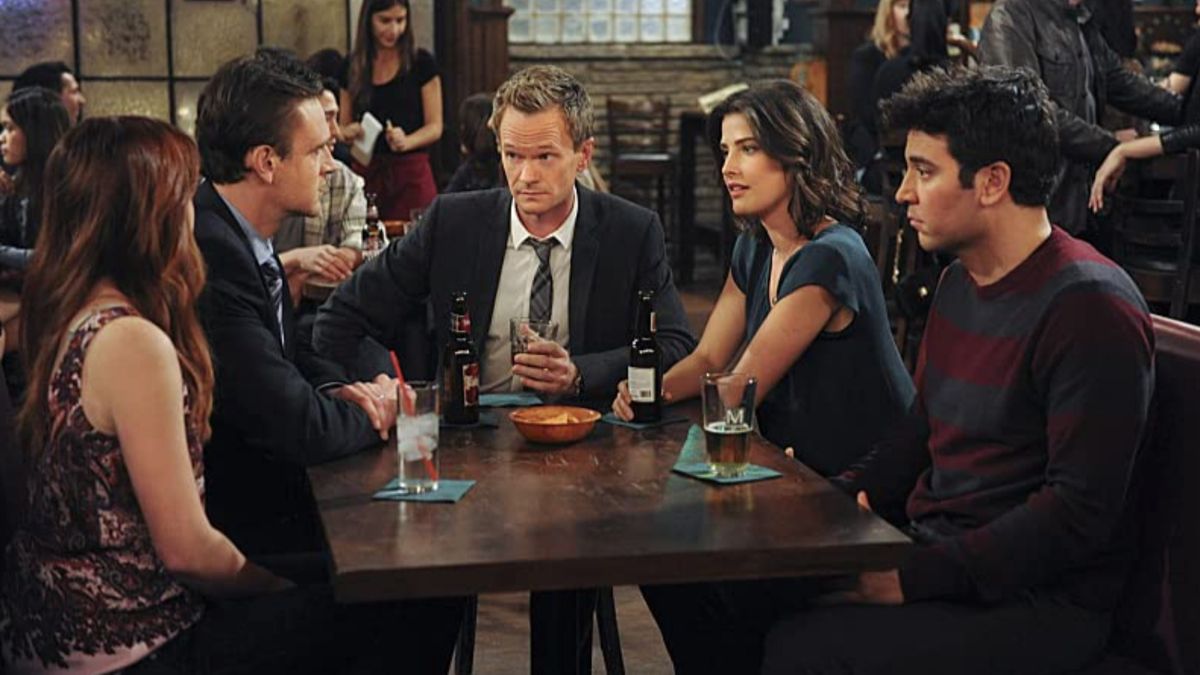Editor’s Note: FII’s #MoodOfTheMonth for November, 2021 is Popular Culture Narratives. We invite submissions on various aspects of pop culture, throughout this month. If you’d like to contribute, kindly email your articles to sukanya@feminisminindia.com
Trigger Warning: Mentions of rape and sexual violence
When the concept, action, or simply the word ‘rape’ is employed with an intention to work out a comic scenario, it is called a rape joke. Such usage undermines the gravity of rape, as well as the trauma of survivors. There are many ways in which rape is used as a comedy trope in films and television. This includes both overt and covert ways of including it to elicit laughs.
The explicitness depends on the targeted audience, time of release, nature of the material, and most importantly, the directness of the act itself, and the genders of both the survivor and perpetrator. The justification is that these are just jokes, and joking about something does not mean you condone it, which might be true for some people engaging in this kind of humour. However, when such humour is engaged with, it ends up downplaying the crime, if not out rightly justifying it.
While it is true that in the recent years, creators willfully attempt to be mindful of their content, most still continue to use rape jokes for shock value, sometimes in the name of dark humour. But even in progressive content, creators tend to slip up. Jokes about non consensual sexual situations still find trouble being recognised as rape jokes. If a sexual situation involves coercion, unequal power dynamics, emotional or psychological blackmail, one person being incapable of giving consent or the like, it cannot be depicted in a light, humorous context.
Even films and shows which address sexual assault in a nuanced manner tend to sometimes either gloss over or outright ridicule survivors. Cis het male survivors abused by women, as well as trans and nonbinary survivors are particularly ignored or used for comic relief. This tendency does not of course exit on screen isolated from the society. As a society, we tend to validate rape jokes and continue to give space for them. Mainstream popular culture still uses some tropes which normalise rape jokes and tell us to let it pass because it is ‘just entertainment‘ and not to be taken so seriously.
When rape as an act itself becomes the joke
In some films, rape is used as a joke in itself with not even the slightest acknowledgement of the fact that it is gravely problematic. This is one of the most direct ways in which rape is joked about and perhaps the most harmful. While the other forms of rape humour are undeniably wrong, they appear to at least have the awareness that it is inappropriate to use rape for laughs, an attempt to circumvent the directness. Direct use of rape for humour is more offensive since it knowingly condones rape in the name of dark humour.

For example, Grand Masti, a film by Indra Kumar almost entirely rides on misogyny, but one line sticks out. The protagonist portrayed by Vivek Oberoi, sees a news report of a gang rape and says, “Speaking of rape, where is my wife?“. This is especially in bad taste because of the legal vaccum on marital rape in India and the high incidence of intimate partner violence. The fact that something as violent as a gang rape is used to build up to a crass joke is almost unbelievably insensitive.
The ‘player’ who deceives women to bed them
Most popular culture narratives on friend gangs portray a cis het male character who objectifies and deceives women to bed them and takes pride in his many sexual conquests. He is usually cheered on by the other characters, especially other men. The group continues to support him despite their suspicions that he may be engaging in sexual intercourse based on manipulated consent. His conquests are used to enhance comic emphasis.

In the popular series How I Met Your Mother, created by Carter Bays and Craig Thomas, after the character Barney spends the night with a woman, his friend asks him if the woman is aware that he did so, and the usual mass laughter background of sitcoms plays in the background. This reinforces the harmful notion that sexual activity is done to women rather than with them.
Comedy about rape continues to take space in popular culture in both overt and covert ways. It has survived for so long because society is so deeply entrenched in patriarchal norms that the concept of consent and the true severity of its violation is something that has still not been recognised
The ‘romantic gesture’ of forcing oneself onto their love interest
In the 2004 Bollywood film Hum Tum, the protagonist played by Saif Ali Khan, forcefully kisses his love interest Rani Mukherjee because they get into an argument and he wants her to stop talking. This reinforces gender power dynamics by normalising that he is allowed to do anything without waiting for consent.
To make matters worse, this happens in a scenario where she had explicitly rejected his advances earlier. They end up together in the climax of the film. While this is not rape, it still erases the line of consent. Romanticising this behaviour also normalises other kind of similar activities like stalking, in the name of romance.
Also read: Your Rape Joke is Not Funny, Period.
Rape as a sexual adventure
This is when the perpetrator, usually a cisgender man, rapes a woman and considers it a victory. It also reiterates the harmful idea that women are just trophies for men – under their control, to sate their egos and provide sexual gratification, no matter what the consequences are for them.
Matt Damon’s character, in Ocean’s 13, the “innocent” hero of the film, drugs Ellen Barkin and takes advantage of her inebriated state. It is justified in the movie because Matt Damon is not attracted to her and is distracting her in order to rob her boss. This does not make it passable because sexual harassment is sexual harassment, no matter the intent.
When rape is used as the punchline
In Bollywood’s blockbuster 3 Idiots, Aamir Khan pranks the character of Omi Vaidya by altering the text of his speech so that he ends up repeatedly saying that the principal has raped many people in the institution. This prank is also supposed to be a moral lesson. While they do not directly condone rape, they still downplay its severity and mock survivors by making it a punchline.
The trivialisation of sexual assault on men
Patriarchal notions of gender position cis het male survivors of sexual abuse as weak, when they acknowledge their trauma. Their weakness then becomes a trope to create humour.
One of the most surprising names on this list is Schitt’s Creek, a show known for its progressive narrative. However, in the pilot, Sarah Levy’s character implies that her brother is raped frequently while in prison, which is supposed to be a joke. While the show never repeats such a joke, it is essential to see how deep patriarchy is ingrained even in the most liberal of circles.
It can be said that art is just imitating life, but when art imitates life without any critique, it aids in the stagnation and further reinforcement of very real gender power dynamics and violence. Even the creators who realise that this is not to be humoured about are yet to understand how many ways there are in which consent is violated every day
When sexual assault by women is unquestioned
Sexual assault by women of men is often ridiculed because women aren’t seen as strong enough to physically overpower a man, and sexual assault of women by other women is fetishised.
In Wedding Crashers, Isla Fisher handcuffs Vince Vaughn and assaults him while he repeatedly asks her to stop. Later, he falls in love with her “confidence“, and they end up together. The movie treats it as experimental sexual activity, even though his consent is clearly violated. Many lauded the scene, claiming that it was refreshing to see a woman being the instigator of comedy rather than the punchline. Of course, women should be given this opportunity on screen, but no one, irrespective of gender, should be performing comedy about sexual assault.
Sometimes, rape by women is also seen as women taking control of their sexuality rather than a violation. For example, Bridgerton has been lauded by feminists for focusing on female pleasure. While it does do that, the series finale shows Rege-Jean Page asking Phoebe Dynevor to stop during sex, and she refuses because he has lied to her about being infertile so that they don’t have to have a child. While he is in the wrong, and she has every right to be angry, she does not get the right to assault him. This kind of portrayal is not a step forward in the movement for gender parity and justice.

Comedy about rape continues to take space in popular culture in both overt and covert ways. It has survived for so long because society is so deeply entrenched in patriarchal norms that the concept of consent and the true severity of its violation is something that has still not been recognised.
Furthermore, our society is still built around power structures that create gender roles which are continuously reinforced and perpetuated by films and television series. It can be said that art is just imitating life, but when art imitates life without any critique, it aids in the stagnation and further reinforcement of very real gender power dynamics and violence. Even the creators who realise that this is not to be humoured about are yet to understand how many ways there are in which consent is violated every day. We must realise that violence in whatever form is not funny, and something as traumatic as rape cannot, in any context, be funny.
Also read: The Joke’s On You? Let Me Laugh: On Being A Feminist Killjoy
Featured Image Source: Medium
About the author(s)
Jyni Verma is a writer with a focus on gender, intersectionality, social justice issues and cultural analysis. They are currently pursuing their masters in sociology at Jamia Millia Islamia.






Very insightful and thought-provoking. A necessary direction to think in!
Very well written 👏👏👏
👏👏